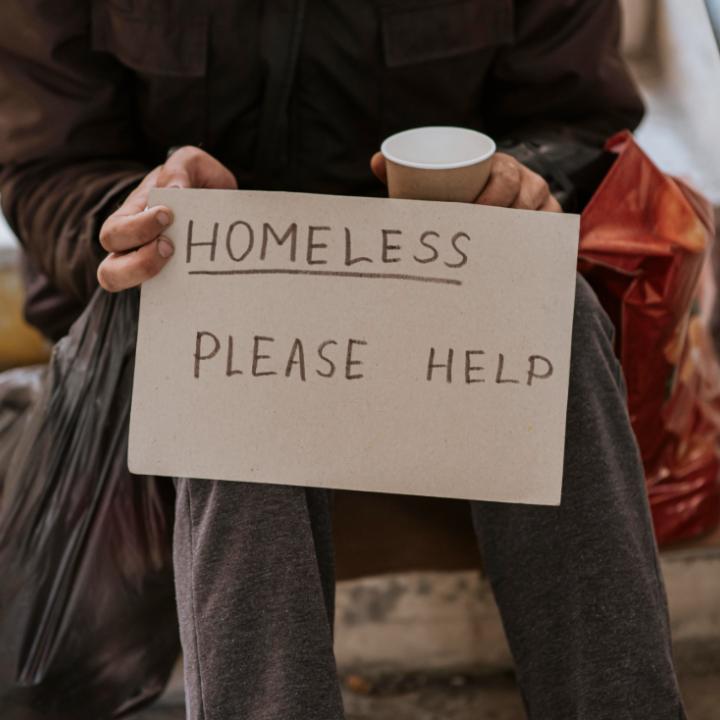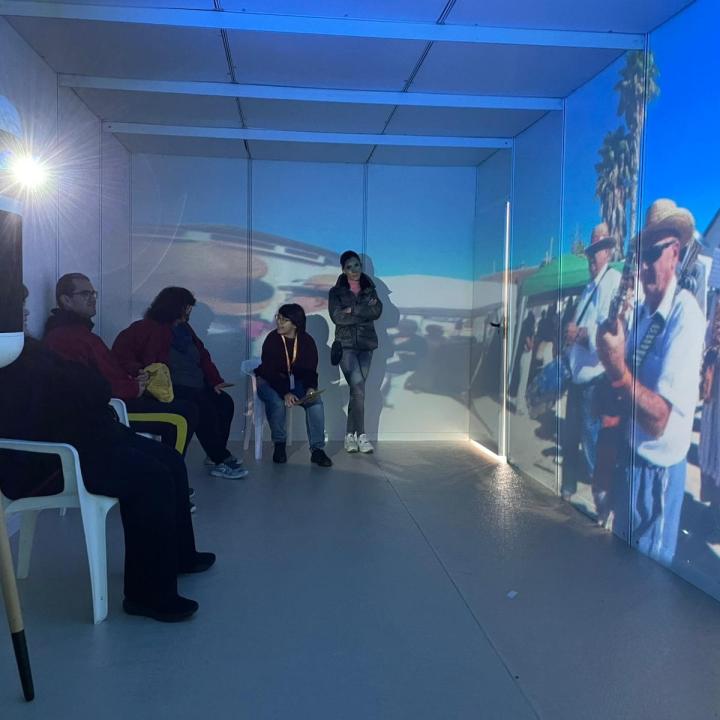The visit to these resources is part of the social route organized by the cooperative so that members can learn about different services managed by the organization.
About sixty members of Suara Cooperativa have recently visited a service for people in a situation of homelessness and HIV, as well as a service of the Dependent Unit for inmates on semi-liberty. This visit is part of the social route, organized by the cooperative to make members aware of the different resources it manages.
The outing began with a visit to SARA in Sabadell, a Càritas residential service for homeless people with HIV that Suara has been managing for almost 30 years. In this, around fifteen people live there in a situation of risk of severe social exclusion, so the stays are of long duration with the aim of being able to restore their vital projects, explained the director of the center, Mar Diéguez, to the members of Suara Cooperativa.
For this reason, we work with individualized plans that adapt to the needs and rhythms of each person served, who are the ones who lead their vital projects. Therefore, social workers and educators accompany people in the construction of their life projects with the aim of improving their emotional well-being and self-esteem, creating daily routines, doing activities that help to enhance their skills or abilities, as well as they can recover your relational network. "We work with the acceptance of the illness and reestablishing ties with the family", emphasized Diéguez during the partners' visit.
As part of the visit, the partners were able to hear the testimony of the people served in this service. One of them reported that since arriving at SARA she has not returned to her addiction, has recovered her relationship with her mother and has started to establish daily routines such as going to the gym. "It has helped me learn to have obligations, to do things in my day-to-day life", he told Suara's partners last Saturday, to whom he also explained that he had studied three years of his law degree and, perhaps, he did not rule out finishing it one day. "I have goals here", he said.
Breaking myths
"How many people would you say are in the prisons of Catalonia?", asked Sergi Fortià, Suara's operational director and coordinator of reintegration flats, to the partners who participated in the route. Far from what many citizens imagine, the reality is that in Catalonia's penitentiary centers there are only approximately 8,000 people deprived of their liberty, which represents 0.01% of the population.
This, however, is not the only myth that Fortià broke, who explained that, mainly, these are people in a situation of vulnerability, who have not committed serious crimes of violence, and the average recidivism rate in Catalonia is of approximately 20%, one of the best results in European territories. This, Fortià explained, is also possible because the Catalan penitentiary system favors the reintegration of people with different openness policies, alternative measures and specialized resources and services.
One of these is the UD for people in the third degree of penitentiary. People who are in the third degree due to compliance and good progress are offered to spend the night in a flat in the Justice Unit with the aim of getting a job, strengthening the family and/or social network and promoting the their reinsertion
The partners visited one of these flats, with capacity for ten people staying overnight and eight people in daytime monitoring, which has been managed by Suara in the Baix Llobregat for half a year. Esther Olivares, director of this service, assured that it is "very destigmatizing that helps to reduce crime and generate positive opportunities for reintegration".
This is due to the fact that these homes are located in community settings, which facilitate the reintegration of the person into society, since they can lead a life closer to freedom without the stigma of having to return to the penitentiary every night with the time and expense involved. The people who sleep in this Justice Dependent Unit, which opens its doors from 8:00 p.m. to 8:00 a.m., are residents of the area and must stay there for at least eight hours. This allows them to regain a certain normalcy during the day with everyday actions such as taking their children to school or going to work, Olivares narrates.
Beyond nighttime accompaniment, Olivares also meets during the day with the people served in the Dependent Units to monitor their work and/or training plan with the aim of improving their process of effective reintegration into society as well as carrying out several coordinations with the multidisciplinary team of the CP in order to carry out an efficient follow-up through continuous evaluation and follow-up to the person with periodic reviews.
In Catalonia there are a total of 17 similar units spread throughout the territory with capacity for more than 360 people. Suara Cooperativa has ten years of experience in this area, since since 2015 it has managed a reintegration flat in Figueres where it is also in charge of another Unit that manages one of these services in the Alt Empordà, which are now they add that of Baix Llobregat and another in Vallès Occidental.
Social routes
The Societaria Route is an activity of the Societaria Participation Plan of Suara Cooperativa, with the aim of raising awareness of the diversity of services managed by the cooperative and creating spaces for members to meet. On these routes, around fifty partners, members of the Governing Council and the Participation team visit services in various areas, getting to know first-hand the project, the human team and the work methodologies.
This last route was very well received by the partners, as evidenced by the satisfaction surveys that were carried out after these. "You learn a lot, hearing about the service is not the same as seeing how it works on the ground. It has also been an ideal day of meeting and getting to know other colleagues", expressed one of the participants. Another assured that: ""It was very enriching, I learned a lot and shared very valuable moments with the colleagues who went there".




